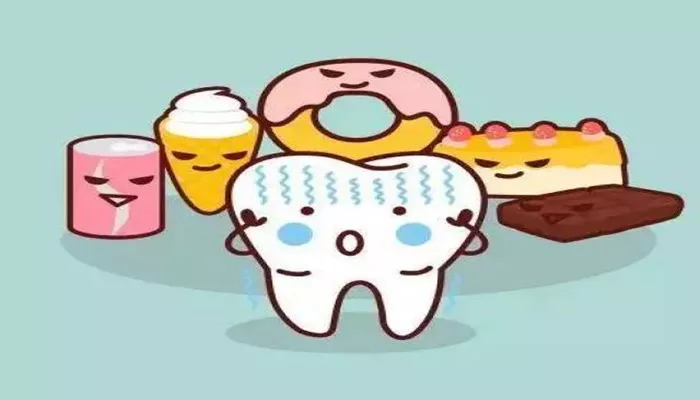In recent years, bamboo charcoal has gained popularity as a natural remedy for various health and beauty applications, including oral care. Many people are curious about its effectiveness for teeth whitening and overall dental health. This article will explore the properties of bamboo charcoal, its potential benefits and drawbacks for dental care, and provide recommendations for safe use.
What is Bamboo Charcoal?
Bamboo charcoal is made from the bamboo plant, which is known for its rapid growth and sustainability. The charcoal is produced by burning bamboo at high temperatures in a low-oxygen environment, a process called pyrolysis. This process creates a porous material that is believed to have various health benefits, including detoxification and adsorption properties.
How Bamboo Charcoal Works
Bamboo charcoal is known for its ability to absorb impurities and toxins. Its porous structure allows it to trap particles, which is why it is often used in air and water purification. This property has led to its use in oral care products, where it is claimed to help remove stains and promote oral health.
The Claims About Bamboo Charcoal for Teeth
Many proponents of bamboo charcoal claim that it can provide several benefits for oral health, including:
1. Whitening Teeth
One of the most common claims is that bamboo charcoal can whiten teeth. The idea is that its abrasive texture helps remove surface stains caused by food and beverages like coffee, tea, and red wine.
2. Freshening Breath
Bamboo charcoal is believed to absorb odors, which can help freshen breath. This property is especially appealing to those who suffer from chronic bad breath.
3. Detoxifying the Mouth
Some advocates suggest that bamboo charcoal can help detoxify the mouth by absorbing harmful bacteria and toxins that contribute to dental issues.
4. Promoting Overall Oral Health
Bamboo charcoal is also claimed to promote overall oral health by reducing plaque buildup and preventing gum disease.
Is Bamboo Charcoal Good for Teeth?
While the claims about bamboo charcoal are appealing, it is essential to examine the scientific evidence supporting its use in dental care.
1. Teeth Whitening
The abrasive nature of bamboo charcoal may help remove surface stains, similar to how traditional whitening toothpaste works. However, this abrasiveness can also pose risks. Over time, excessive abrasion can wear down tooth enamel, leading to increased sensitivity and a higher risk of cavities.
2. Breath Freshening
There is limited scientific evidence to support the claim that bamboo charcoal can effectively freshen breath. While its adsorptive properties may help reduce odors, it is not a substitute for good oral hygiene practices, such as regular brushing and flossing.
3. Detoxification
The concept of detoxifying the mouth with bamboo charcoal is based on its adsorption properties. However, the mouth has its natural mechanisms for maintaining health, including saliva production, which helps wash away food particles and bacteria. There is no substantial evidence to suggest that bamboo charcoal significantly enhances this process.
4. Oral Health Benefits
While some studies have indicated that activated charcoal (a broader category that includes bamboo charcoal) may have antibacterial properties, more research is needed to determine its effectiveness in promoting oral health. Additionally, the abrasive nature of charcoal products may lead to enamel erosion, which can compromise dental health.
Potential Risks of Using Bamboo Charcoal
While bamboo charcoal may offer some benefits, it is essential to consider the potential risks associated with its use:
1. Enamel Erosion
As mentioned earlier, the abrasive texture of bamboo charcoal can wear down tooth enamel over time. Enamel erosion can lead to increased tooth sensitivity, discoloration, and a higher risk of cavities.
2. Gum Irritation
Some people may experience gum irritation or sensitivity when using bamboo charcoal products. If you notice any discomfort, it is advisable to discontinue use and consult your dentist.
3. Staining of Dental Work
Bamboo charcoal may stain dental work, such as crowns, veneers, or braces. If you have any dental restorations, it is essential to consult your dentist before using charcoal products.
4. Limited Evidence of Effectiveness
While bamboo charcoal is marketed as a natural solution for oral health, scientific evidence supporting its effectiveness is limited. Relying solely on bamboo charcoal for dental care may lead to neglecting essential practices like regular brushing and flossing.
How to Use Bamboo Charcoal Safely
If you decide to incorporate bamboo charcoal into your oral care routine, here are some tips for safe use:
1. Choose Quality Products
Select high-quality bamboo charcoal toothpaste or powder from reputable brands. Look for products that have been tested for safety and efficacy.
2. Use Sparingly
Limit the use of bamboo charcoal products to avoid excessive abrasion. Consider using them only a few times a week instead of daily.
3. Follow Up with Fluoride Toothpaste
After using bamboo charcoal, follow up with a fluoride toothpaste to help strengthen enamel and protect against cavities.
4. Maintain Good Oral Hygiene Habits
Continue to practice good oral hygiene, including brushing twice a day, flossing daily, and visiting your dentist regularly for check-ups and cleanings.
5. Consult Your Dentist
Before trying bamboo charcoal products, consult your dentist, especially if you have sensitive teeth, dental restorations, or existing dental issues.
Conclusion
Bamboo charcoal has gained popularity as a natural remedy for teeth whitening and oral health. While it may offer some benefits, such as removing surface stains and potentially freshening breath, there are significant risks associated with its use. The abrasive nature of bamboo charcoal can lead to enamel erosion and gum irritation, which can compromise dental health in the long run.
As with any dental product, it is essential to approach bamboo charcoal with caution. Maintaining a solid oral hygiene routine and consulting with your dentist are crucial steps to ensure your teeth and gums remain healthy. While bamboo charcoal can be a part of your oral care routine, it should not replace traditional dental practices that are proven to promote oral health.
Related topics:

